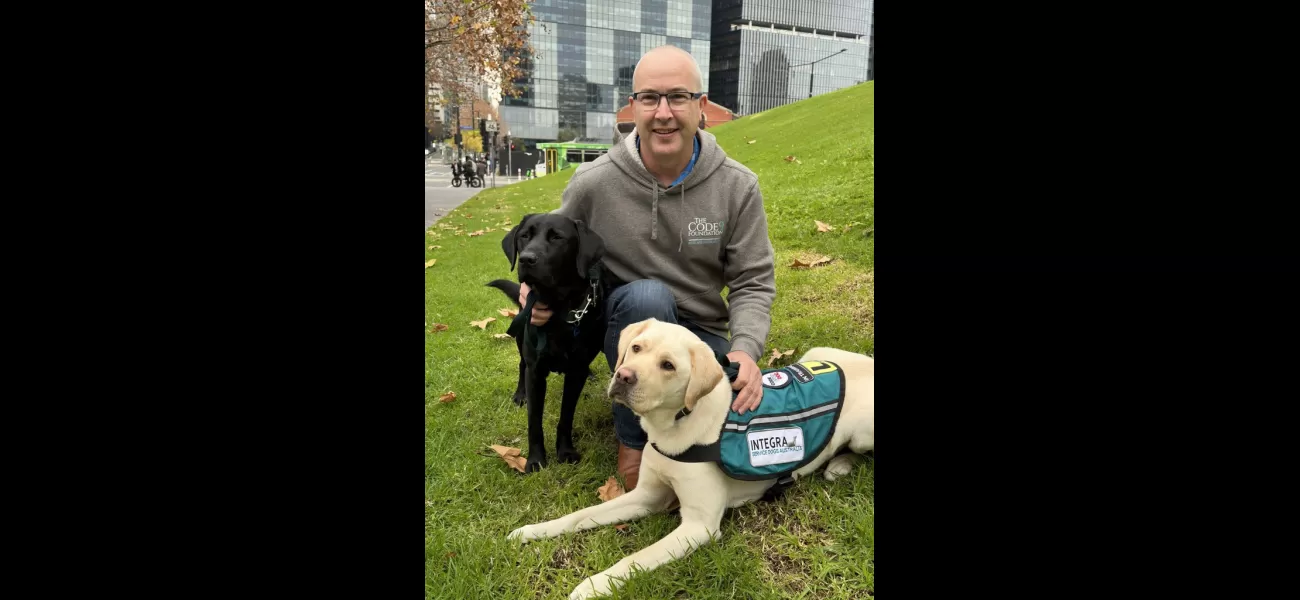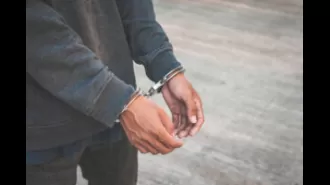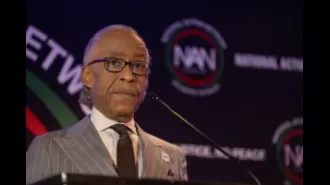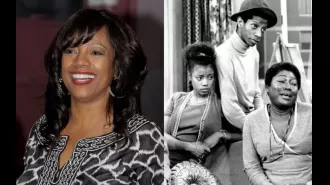Police officers are now talking about PTSD, letting others know that they are not alone in their struggles.
A skilled cop had faced tough situations before and believed he was managing well, until he realized he wasn't.
June 26th 2024.

Mark Thomas had been a police officer for 21 years when something happened that changed his life forever. It was April 8, 2003, and he had been called to a traumatic incident that left him feeling completely worn down. "I remember that day vividly," Thomas shared in an interview with 9news.com.au. Looking back, he now realizes that there were many warning signs that he was struggling with his mental health. "There was something about that scene that was unlike anything I had experienced before," he recalled. "When I saw the deceased, I felt a physical reaction in my chest."
Thomas was later diagnosed with PTSD, depression, and anxiety, but at the time, he didn't understand what was happening to him. "I was in my thirties and mental health awareness wasn't as widespread as it is now," he explained. "I didn't know what to do or how to handle it." He continued working as a police officer for another decade, but deep down, something was brewing inside of him. It all came to a head in February 2013 when he experienced a "catastrophic loss of self."
"My symptoms just escalated to a point where my resilience was completely depleted," Thomas said. "It was like a mental breakdown... I was having flashbacks, and I couldn't sleep because the images were constantly bouncing around in my head." He eventually admitted himself to the hospital and was diagnosed with PTSD, depression, and anxiety.
Feeling alone and isolated, Thomas struggled to come to terms with his diagnosis. "I thought no one could understand what I was going through," he admitted. But that was far from the truth. In fact, it is estimated that one in 10 emergency services workers in Australia will develop PTSD, and they are twice as likely to experience a mental health condition compared to the general population.
Realizing that he wasn't alone in his struggles, Thomas decided to create a support group for police officers on Facebook. "I wanted to create a safe space for fellow officers who were struggling or had just been diagnosed," he explained. This led to the establishment of the Code 9 Foundation in 2015, which now has over 3,200 members consisting of police, fire, paramedics, and triple zero operators.
The foundation's mission is to provide support and resources for first responders, including meal packages, respite breaks for families, and trained assistance dogs. "We can do anything," Thomas said proudly. "We are a group of professionals who will do whatever it takes to make our fellow officers smile and ease their burden." He knows firsthand the importance of having a support system during dark times. "To have a glimmer of hope in the midst of darkness is incredibly powerful," he added.
As we observe National PTSD Awareness Day, Thomas hopes that by sharing his story, he can help other police officers and emergency service workers see that there is life beyond a mental health diagnosis. "I am more than just a police officer," he said. "I am a husband, father, cricket coach, and the founder of a charity. PTSD, depression, and anxiety do not define me. They are just a part of who I am, and I have learned to manage them."
For those seeking support, Thomas encourages reaching out to organizations like Beyond Blue and Lifeline. "You are not alone, and there is hope for a brighter future," he reassures. Together, we can break the stigma surrounding mental health and support those who dedicate their lives to keeping us safe.
Thomas was later diagnosed with PTSD, depression, and anxiety, but at the time, he didn't understand what was happening to him. "I was in my thirties and mental health awareness wasn't as widespread as it is now," he explained. "I didn't know what to do or how to handle it." He continued working as a police officer for another decade, but deep down, something was brewing inside of him. It all came to a head in February 2013 when he experienced a "catastrophic loss of self."
"My symptoms just escalated to a point where my resilience was completely depleted," Thomas said. "It was like a mental breakdown... I was having flashbacks, and I couldn't sleep because the images were constantly bouncing around in my head." He eventually admitted himself to the hospital and was diagnosed with PTSD, depression, and anxiety.
Feeling alone and isolated, Thomas struggled to come to terms with his diagnosis. "I thought no one could understand what I was going through," he admitted. But that was far from the truth. In fact, it is estimated that one in 10 emergency services workers in Australia will develop PTSD, and they are twice as likely to experience a mental health condition compared to the general population.
Realizing that he wasn't alone in his struggles, Thomas decided to create a support group for police officers on Facebook. "I wanted to create a safe space for fellow officers who were struggling or had just been diagnosed," he explained. This led to the establishment of the Code 9 Foundation in 2015, which now has over 3,200 members consisting of police, fire, paramedics, and triple zero operators.
The foundation's mission is to provide support and resources for first responders, including meal packages, respite breaks for families, and trained assistance dogs. "We can do anything," Thomas said proudly. "We are a group of professionals who will do whatever it takes to make our fellow officers smile and ease their burden." He knows firsthand the importance of having a support system during dark times. "To have a glimmer of hope in the midst of darkness is incredibly powerful," he added.
As we observe National PTSD Awareness Day, Thomas hopes that by sharing his story, he can help other police officers and emergency service workers see that there is life beyond a mental health diagnosis. "I am more than just a police officer," he said. "I am a husband, father, cricket coach, and the founder of a charity. PTSD, depression, and anxiety do not define me. They are just a part of who I am, and I have learned to manage them."
For those seeking support, Thomas encourages reaching out to organizations like Beyond Blue and Lifeline. "You are not alone, and there is hope for a brighter future," he reassures. Together, we can break the stigma surrounding mental health and support those who dedicate their lives to keeping us safe.
[This article has been trending online recently and has been generated with AI. Your feed is customized.]
[Generative AI is experimental.]
0
0
Submit Comment





